When: October 23, 2019
Speaker: Prof. Claudio Mazzolla
Topic: Italian Cinema and Immigration
About the Speaker:
Dr. Claudio Mazzola received his “Laurea” in English from the University of Milan in 1981. He also received a degree in cinema studies from the City University of Milan. Claudio went on to receive a Ph.D. in Comparative Literature from the University of Washington in 1986. His area of expertise is Contemporary Italian fiction and Italian Cinema. He has published a number of articles on those topics.
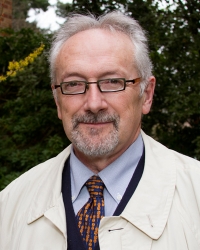
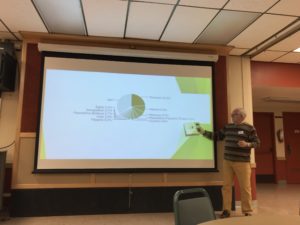 Dr. Claudio Mazzola, a long-time presenter at Dante, gave a fascinating lecture about “Italian Cinema and Immigration” at the Italian-language presentation to the Dante Alighieri Society on October 23, 2019. Italy, perhaps more than any other European country, has been at the forefront of the immigration debate in Europe.
Dr. Claudio Mazzola, a long-time presenter at Dante, gave a fascinating lecture about “Italian Cinema and Immigration” at the Italian-language presentation to the Dante Alighieri Society on October 23, 2019. Italy, perhaps more than any other European country, has been at the forefront of the immigration debate in Europe.
Dr. Mazzola began by providing a historical background of immigration in Italy, showing a series of informative statistical charts and graphs whose numbers tell a story of immigration and give insight into a changing demographic. Few immigrants were present before the arrival of 10,000 Albanians at Bari in 1990, when immigration laws were not in place. (The only law in place was from 1930.) By January 2017, the resident population of Italy was shown to be 60,579,000 with 5,029,000 foreign residents.
 He highlighted information drawn from ISTAT (Isituto Nazionale di Statistica) data to bring to the foreground changing cultural elements that have been reflected in films and documentaries. Immigration over the last thirty years has influenced the relatively homogeneous Italian culture with changes in food, businesses, work hours, marriages, and religion. For example, an aging population is now supported by an influx of younger immigrants, including female caregivers (badanti), primarily from the Ukraine. Intermarriages between Italians and non-Italians are more common, particularly between Italian men and foreign women. (These are just a few of the fascinating trends and details that Dr. Mazzola highlighted.)
He highlighted information drawn from ISTAT (Isituto Nazionale di Statistica) data to bring to the foreground changing cultural elements that have been reflected in films and documentaries. Immigration over the last thirty years has influenced the relatively homogeneous Italian culture with changes in food, businesses, work hours, marriages, and religion. For example, an aging population is now supported by an influx of younger immigrants, including female caregivers (badanti), primarily from the Ukraine. Intermarriages between Italians and non-Italians are more common, particularly between Italian men and foreign women. (These are just a few of the fascinating trends and details that Dr. Mazzola highlighted.)
In the final part of the presentation, Dr. Mazzola listed films by decade and characterized them in response to immigration. In the first period, from 1990 – 2000, the films present a somewhat idealistic view of immigration. Lamerica (1994) by Gianni Amelio, Vesna va veloce (1996) by Carlo Mazzacurati, and L’articolo 2 (1994) by Maurizio Zaccaro are included in this period.
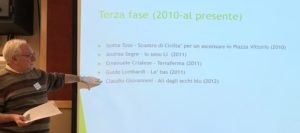 Films in the second phase, from 2000 – 2010, move away from the earlier paternalism and try to reflect the immigrant’s point of view. Titles include: Saimir (2004) by Francesco Munzi, Quando sei nato non ti puoi più nascondere (2005) by Marco Tullio Giordana, and La giusta distanza (2007) by Carlo Mazzacurati.
Films in the second phase, from 2000 – 2010, move away from the earlier paternalism and try to reflect the immigrant’s point of view. Titles include: Saimir (2004) by Francesco Munzi, Quando sei nato non ti puoi più nascondere (2005) by Marco Tullio Giordana, and La giusta distanza (2007) by Carlo Mazzacurati.
Films in the third period, 2010 – present, portray the anxiety of the immigrant experience. Listed in this phase are: Scontro di Civiltà per un ascensore in Piazza Vittorio (2010) by Isotta Toso , Io sono Li (2011) by Andrea Segre , Terraferma (2011) by Emanuele Crialese, La’-bas (2011) by Guido Lombardi, and Ali ha gli occhi azzurri (2012) by Claudio Giovannesi.
Dr. Mazzola ended with film clips of a most moving film, Fuocoammare, Fire at Sea, (2016) about the only doctor on the island of Lampedusa, where many of the North African refugees and migrants land. In the film, the doctor is responsible for the huge influx of refugees that the island’s port receives and processes and for the island’s inhabitants, who seem to have little interaction with the refugees.
In one heartbreaking scene, the doctor is in a monologue recalling the horrors and overwhelming numbness of having to examine and document so many corpses, as well as the desperate state of many of the living immigrants, who arrive on overcrowded boats. In another contrasting scene, the doctor is diagnosing an engaging young resident Italian boy with a patch on his eye for “lazy eye.” With these scenes, Mazzola highlighted the intentional contrast in the film, showing the doctor as the only point of interaction between the two groups.
Many thanks to Dr. Mazzola for an illuminating presentation on a timely and important topic. We appreciate his expertise in Italian Society in Film and Literature, which he teaches at the University of Washington, and hope he will return soon.
Mary Beth Moser



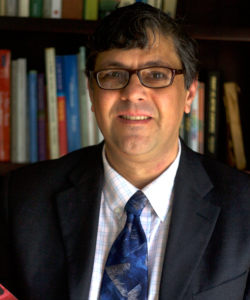

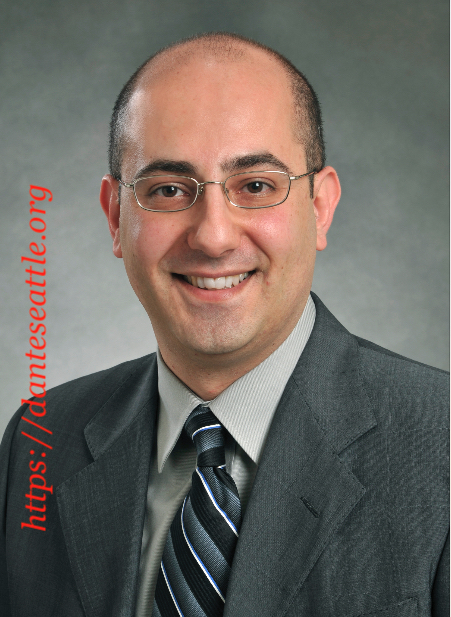
 Gabriella Vagnoli was born in Pisa, Tuscany, home of the famous Leaning Tower. She grew up in a multicultural family thanks to her Brazilian mom and remembers teaching Italian for the first time as a child to her Brazilian cousins. She obtained a Laurea in English and Spanish Language and Literature at the Università degli Studi di Pisa and during her college years spent a year in the University of Reading, UK, studying mainly the works of Shakespeare. After obtaining a Certificate as a Teacher of Italian (DITALS II) at the Università per Stranieri di Siena, she has taught in a full immersion school in Florence, a children's full immersion program in Chicago and a Community College in Illinois.
Gabriella Vagnoli was born in Pisa, Tuscany, home of the famous Leaning Tower. She grew up in a multicultural family thanks to her Brazilian mom and remembers teaching Italian for the first time as a child to her Brazilian cousins. She obtained a Laurea in English and Spanish Language and Literature at the Università degli Studi di Pisa and during her college years spent a year in the University of Reading, UK, studying mainly the works of Shakespeare. After obtaining a Certificate as a Teacher of Italian (DITALS II) at the Università per Stranieri di Siena, she has taught in a full immersion school in Florence, a children's full immersion program in Chicago and a Community College in Illinois. Tiziana was born and raised in Sardinia, a beautiful Italian island in the Mediterranean Sea. She has always been passionate about foreign languages and cultures, and studied French and German at the Scuola Superiore Interpreti e Traduttori in Milan, where she obtained her first Foreign Languages and Interpreter BA degree. She then pursued her MA in English and German Language and Literature at IULM, one of the most prestigious universities in Milan, Italy for Language and Communication studies.
Tiziana was born and raised in Sardinia, a beautiful Italian island in the Mediterranean Sea. She has always been passionate about foreign languages and cultures, and studied French and German at the Scuola Superiore Interpreti e Traduttori in Milan, where she obtained her first Foreign Languages and Interpreter BA degree. She then pursued her MA in English and German Language and Literature at IULM, one of the most prestigious universities in Milan, Italy for Language and Communication studies.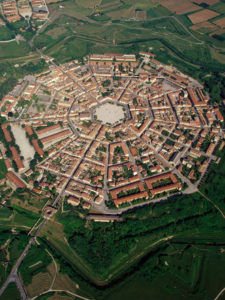


 Nicla is a native of Napoli, Italy. She has a Laurea in Materie Letterarie (degree in humanities) and a Laurea in Pedagogia (degree in Education) from the Università degli Studi di Cassino. She earned her M.A in Italian and her PhD in Comparative Literature from the University of Washington. She has published articles and book chapters on gender and theater as well as politics and religion in Counter-Reformation Italy and in the last years, has been teaching Italian literature, language, and culture in different institutions. In addition to teaching in our program, Nicla is authorized to cover the role of esaminatrice and intervistatrice in our PLIDA Examination Board.
Nicla is a native of Napoli, Italy. She has a Laurea in Materie Letterarie (degree in humanities) and a Laurea in Pedagogia (degree in Education) from the Università degli Studi di Cassino. She earned her M.A in Italian and her PhD in Comparative Literature from the University of Washington. She has published articles and book chapters on gender and theater as well as politics and religion in Counter-Reformation Italy and in the last years, has been teaching Italian literature, language, and culture in different institutions. In addition to teaching in our program, Nicla is authorized to cover the role of esaminatrice and intervistatrice in our PLIDA Examination Board.